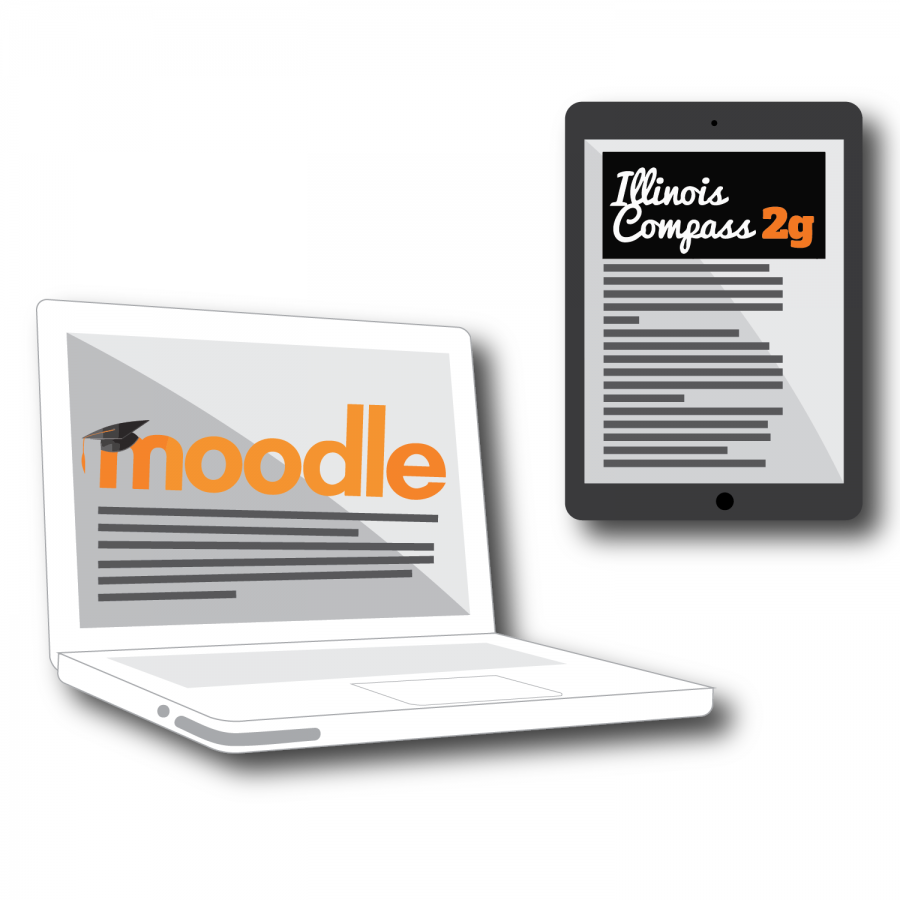Online courses give students flexibility to complete degree
February 8, 2018
Dana Meyerson completed Statistics 100 while diving in California. Meyerson, sophomore in LAS, explained her experiences takes university summer classes thousands of miles away. “Everything was done in a very straightforward way. The homework was structured so that it took you step by step and didn’t make it so if you continued to get it wrong you’d have no idea why,” Meyerson said.
There are countless bonus opportunities to improve your grade and overall comprehension of the course, which was one of the main reasons why Meyerson recommends Flanagan’s online course.
Meyerson’s favorite part of the course was gaining bonus points and a notebook, which acted as a textbook, that students can fill in and send pictures of for more credit.
“This class actually made Lon-Capa work, which in the past has been the bane of my existence,” Meyerson said. “You would input each calculation you make as you do the problem so you know where you went wrong if you get a wrong answer rather than having to guess and (having) no clue what to do.”
Justin Cory Pettijohn, professor of geology, explained how online teaching and learning, whether fully online or in a hybrid classroom, is greatly beneficial for students.
Get The Daily Illini in your inbox!
“The flexibility of online learning levels the playing field, allowing both traditional and non traditional students to actively participate, whether they are living and studying on campus, gaining internship experience internationally or even working on a degree while raising a family in rural Oregon,” Pettijohn said. “Having the flexibility to take online classes during an internship or semester abroad allows students to continue their degree timeline.”
Pettijohn does his best to build and to maintain a positive atmosphere and learning experience through an interactive course with content that continuously engages students while also incorporating guidance and feedback whenever possible.
Another advantage, Pettijohn said, is the ability for him to frequently assess student learning on a more individual level, which is sometimes difficult during large lectures. He was also able to judge student comprehension with subjects and to adjust teaching strategies based on what concepts they were struggling with.
Pettijohn said he was motivated to teach online at the University for many of the same reasons his students enrolled in online courses. He said the flexibility gave him the opportunity to stay at home with his daughter and to transition more smoothly back into academics.
Pettijohn believes his own non traditional background was the key to his ability to have empathy for students from a variety of backgrounds. He also found online teaching to be very efficient, especially when used in a flipped or hybrid classroom model.
As a professor at the University, Pettijohn feels it is essential to connect with people in his field, from his students to guest speakers in the field, including the Illinois State Climatologist, principles of environmental consulting firms or experts from other institutions.
“I enjoyed facilitating the AMA-style Q&A … This type of experiential online teaching and learning helps recruit majors and develop future advocates for science funding,” Pettijohn said. “I imagine students on Earth will be similarly interacting with pioneer teams on Mars in a few decades.”
According to Pettijohn, his Fall 2018 Geology 117 online students will once again have the opportunity to tag along with a seafaring expedition online course in December through a Q&A with a professor aboard the R/V Atlantis, a research vessel..
Pettijohn made the Center for Innovation in Teaching and Learning Teachers Ranked as Excellent by their Students list based on ICES online student evaluations of his first two offerings of Geology 117: The Oceans online course.
Jacqueline Chis, sophomore in LAS, took ANTH 143: Biology of Human Behavior and said the course is an integration of weekly in-class discussion and online materials.
“It was nice being able to go over material at my own pace and to always have access to important material (and) lectures,” Chis said.
The only negative aspect of an online course, according to Chis, would be the lack of instructor-student connections that could be formed because it is mainly done through screens.
Chis also said a positive aspect of online integration to courses is the use of online materials that can be accessed by students at any time.
“As a teacher, having students participating from across campus and around the world creates a diverse global cross-section, which is very exciting,” Pettijohn said. “Having students from different backgrounds and stages of life provides much more varied classroom discussions and viewpoints, which also is very beneficial to students taking the courses.”







